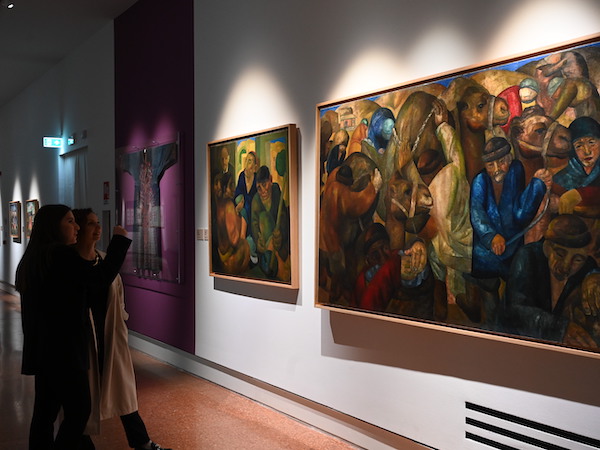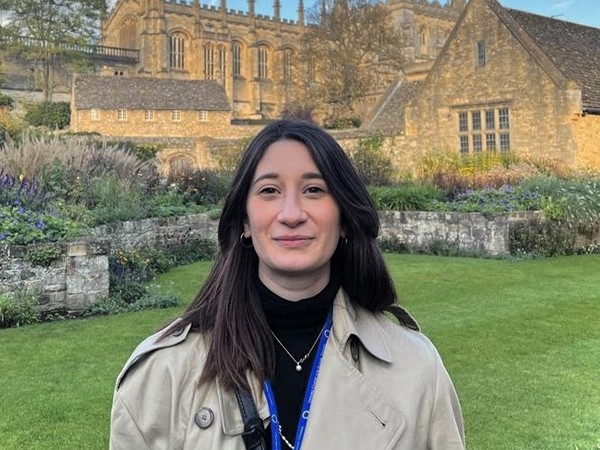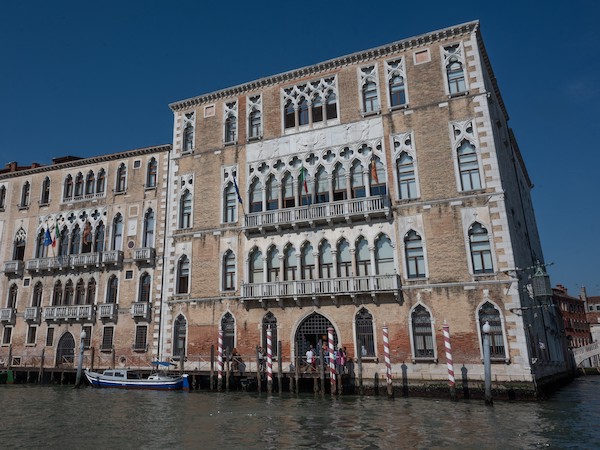Russell King, professor at the Sussex Centre for Migration Research at the University of Sussex and international immigration expert, opened the symposium ‘The migration-politics nexus in today's Europe’ organized in December 2017 by the Ca’ Foscari International Center for Humanities and Social Science.
Prof. King shared the results of his recent research on the impact of Brexit on young migrants in London: “Initially the project was going to be an extensive research on international mobility - he explained - looking at the causes of migration and the outcome of such an important decision. However research is a victim of its time: the referendum and Brexit happened in the middle of our project, and we had to reconsider our results with this crisis and disruption in young migrants’ lives”.
Brexit was an appalling event for the leaders of the movement as well, showing a population with a lack of political interest that was deeply divided and manipulated by the media. The right-wing separatists’ ‘moral panic’ and ‘invasion’ message had a stronger impact than the rational arguments on the economy of the opposing political parties.
How was Brexit experienced by the young foreigners who decided to move to London to study or work? Prof. King shared the examples of Irish, Italian and Romanian migrants: the first ones historically enjoy freedom of movement, the second ones were citizens of a historic member of the European Union and the latter were citizens of a country that only recently entered the EU.
According to the interviews they did not expect such an outcome of the referendum at all. Only a few respondents expected this scenario because of repeated signs of discrimination that happened in the months before the vote. All of a sudden they no longer felt welcome without a good reason.
The “angry irish narrartive”, to quote King showed how Irish immigrants did not experience a feeling of shared victory, but were shocked by how nationalistic the referendum was and certainly felt more connected to Italian and Eastern-European immigrants rather than to their English “neighbours”. Brexit only got those who wanted to leave Britain to go back to their motherland to leave faster, and made everything difficult and less certain for those who had long term projects or stable relationships in the United Kingdom. Romanians appear to be the most worried for they often feel labeled as “second class migrants” and are accepting the thought that they may have to move.
It is far too early to precisely evaluate the impact of Brexit, but it clearly was a significant event in the lives of young immigrants and will certainly have major repercussions in their future.
Maurizio Ambrosini, professor at the University of Milan and sociology and migrations expert, talked about irregular immigration and migration policies. In his research on the last decades, he showed how prevention and the fight against irregularities increased with a growing opposition to cultural and religious diversity.
And yet since return policies were never efficient in European countries (with only 43% of the planned returns happened because of high costs and international agreements), irregular residency still is a dynamic concept. The only alternative is regularization.
There are two “dimensions” to an immigrant’s status: the official and legal approval of its regular status and social acceptance; with these two conditions in mind, we get four categories: clandestines who are not recognized by the State nor socially accepted living on the margins of society without a job, housing or access to any services; on the other end of the spectrum there are regular immigrants who often came with their family with a certain degree of stability.
Refugees or asylum-seekers deal with the most ambiguous situation: they are recognized with an official status but have to deal with increasing hostility and stigmatization from the community, being perceived as dangerous strangers.
The last case scenario regards those who do not have any kind of legal or official recognition but are socially accepted and welcome: domestic workers. Even without a passport or an official document they are generally uncontrolled and can move freely, especially when with an older resident; their formal regularization often happens to facilitate the employers to ensure their lawful employment, not for the direct benefit of immigrants.
These many different statuses and the different regularization policies directly or indirectly implemented by the European Union show how political and legal statuses are less restrictive than what governments usually declare.
Approaching migrations in a broader way is one of the aims of the Humanities and Social Change International Center lead by prof. Shaul Bassi.
Professor Sabrina Marchetti, member of the scientific commission of the center, explained how important this project is: “Cultural and ethnic differences studies will go alongside with other kinds of research in order to build bridges with humanist traditions and economic, sociological and sociopolitical studies. The migration phenomenon and cultural differences will be included in our activities, on a pedagogy, art and literature perspective.
The recent symposium on immigration policies in the EU was linked to the current political scenario and to the implementation norms: these themes cannot be restricted to a single academic field and must be tackled with a variety of instruments; it is important to develop an analytical awareness about these matters to prevent them from being instrumentalized and treated in a simplistic manner.
The centre will adopt this approach to raise awareness on these phenomena and analyze them with the most appropriate academic instruments. We need now more than ever to understand the dynamics and produce more complex and efficient solutions”.
Teresa Trallori











